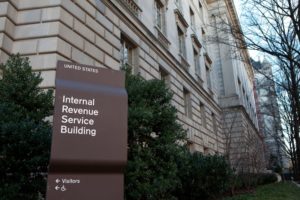Lawmakers Vote To Make Three Tax Provisions for Businesses Permanent
Late last year lawmakers in Washington extended a bill that made three important tax provisions for businesses valid through December 31, 2014. That means those provisions were good for last year’s taxes, but expired when the clock struck midnight on January 1, 2015. The extension was welcome news last year for many businesses. Now there is more good news, as Congress recently voted to make those provisions permanent with a new bill: HR 636.
The three provisions in question are Section 179, Section 1374 and Section 1367(a)(2). With the Section 179 provision taxpayers would permanently be allowed to expense up to $500,000 in qualified assets, instead of just a mere $25,000 without the provision. That is a huge break for many businesses.
Provision Section 1374 has to do with corporations and how they pay taxes. S Corporations typically don’t pay corporate–level taxes. However, C corporations do pay those taxes. When a C corporation chooses to become an S corporation it and purges its assets within a 10-year period it must pay a tax on those gains. However, with Provision 1374 in place the waiting period is cut in half to just five years.
It used to be that when an S Corporation donated appreciated property to a charity it qualified for a fair market value deduction. The shareholders were then required to reduce their basis in the S Corporation’s stock. However, under the Section 1367 provision, those shareholders simply have to reduce their basis according to their share of the adjusted basis of the property that was donated.
If these provisions are passed and become law, they would greatly benefit small businesses. By knowing these provisions are permanent year-round, businesses would be able to better plan their purchases and sales throughout the year. Hopefully this bill is passed by the Senate and signed by the president.
At Least One Top Hedge Fund Manager Favors Trump’s Tax Plan
The tax questions continue to grow as the country waits for President-Elect Donald Trump to be sworn in, in just a few more days. Of course, there is much debate as to whether or not Trump’s tax policies will help or hurt our country and it’s overall economy. The nation is as divided over…
Trump Warns Companies Considering Sending Jobs to Foreign Countries
Trump Warns Companies Considering Sending Jobs to Foreign Countries One of the many promises president-elect Donald Trump made during his run to the White House was to keep more jobs in America. Now that he has been elected, it appears that he is serious about this promise. Trump recently made it very clear, in no…
IRS to Put an End to Its Top 400 Report
Many people believe that the nation’s wealthiest individuals already make too much money without paying their fair share of taxes. Now that billionaire Donald Trump has been elected as our country’s next president, many expect that to only get worse. However, starting next year, it will now be very difficult for anyone to really…
How to Successfully Invest Under President Trump
How to Successfully Invest Under President Trump There is a lot of uncertainty for a lot of different reasons now that Donald Trump has been elected as our country’s next president. Whether you have concerns or not, Trump’s proposed tax policies are likely going to affect you one way or another. Another group of people…




